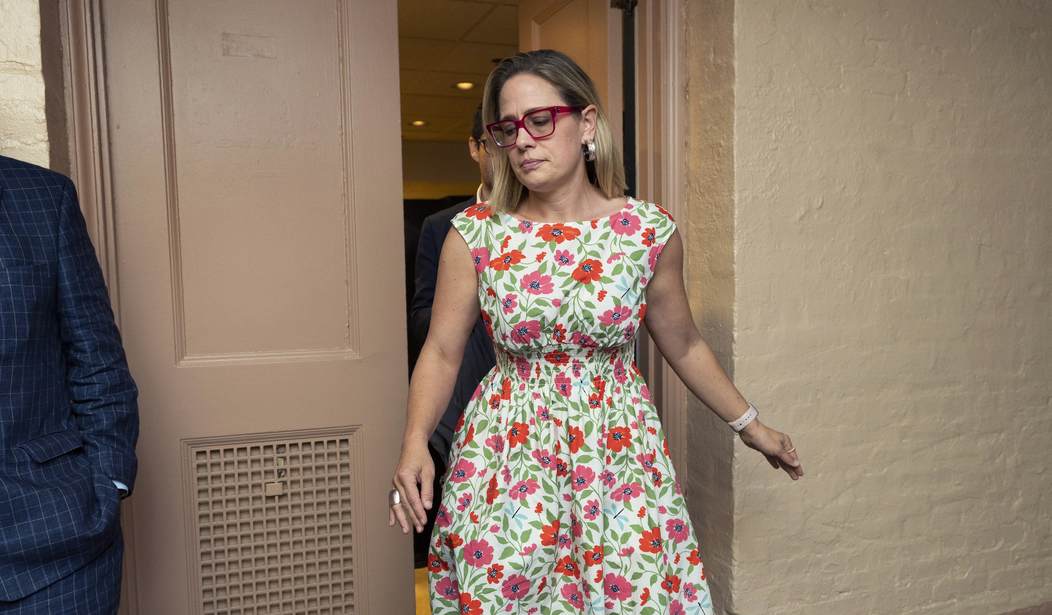With Joe Biden’s Build Back Better bill stalled out and preparing to crash, Democrats have circled back and want to push for voting rights legislation.
In order to do that, Democrats are going to have to find a way around the filibuster, since not one single Republican is backing either the so-called Freedom to Vote Act, which would nationalize local elections, or the John Lewis Voting Rights Advancement Act, which would codify pandemic voting measures like mail-in ballots forever.
The GOP’s case for opposing filibuster reform took a hit last week when Senate Minority Leader Mitch McConnell worked out a deal with Majority Leader Chuck Schumer to suspend the 60-vote threshold in order to pass the debt limit rise by a simple majority.
Colorado Sen. John Hickenlooper made the argument that “if we can change the process on the debt ceiling, then surely we can do the same to protect our democracy” by passing voting rights legislation.
Related: Joe Manchin’s ‘Inflation Vindication’ Probably Sinks the Build Back Better Bill
Republicans have no good answer for that.
“Senator Sinema has asked those who want to weaken or eliminate the filibuster to pass voting rights legislation which she supports if it would be good for our country to do so,” said her spokesperson John LaBombard. He warned that legislation could be “rescinded in a few years and replaced by a nationwide voter-ID law, nationwide restrictions on vote-by-mail, or other voting restrictions currently passing in some states extended nationwide.”
Republicans would dearly love to make that happen. But at the expense of losing the filibuster?
In a statement to POLITICO, a spokesperson said that Sinema “continues to support the Senate’s 60-vote threshold, to protect the country from repeated radical reversals in federal policy which would cement uncertainty, deepen divisions, and further erode Americans’ confidence in our government.” Since joining the Senate in 2019, Sinema’s been a fierce defender of the filibuster and warned that reversing it could lead to terrible outcomes for Democrats down the line.
Sinema, Manchin, and a few other Democrats can see where losing the filibuster would lead. Democrats might control Congress for now and can ram through all kinds of legislation without the filibuster. But what guarantee do they have that when Republicans take power, the GOP doesn’t overturn every reform the left put in place?
Importantly, Democrats are no longer trying to scrap the filibuster altogether given Manchin’s and Sinema’s opposition to that step. Instead, they’re pivoting to an attempt to sway the duo to support a rules change that could enable legislation curbing gerrymandering and restoring the Voting Rights Act to evade the 60-vote requirement.
The leading options that Manchin and Sinema’s colleagues hope to sway them on are installing the talking filibuster, which would force the minority to hold the floor and continuously put up at least 41 votes to block legislation, or creating a filibuster exception specific to the issue of elections and voting.
Creating an exception to the filibuster is almost as bad as killing it anyway. If it would only take a simple majority to suspend the filibuster rule, why stop at elections and voting? Why not climate change or some other leftist fever dream?
Forcing a “talking filibuster” may mean fewer attempts to employ the rule but wouldn’t come close to stopping it. And the Senate may find itself spending most of its time dealing with trying to break a filibuster while vital legislation like the budget and national defense are left out.
In fact, that latter reason is why the current rule of 60 votes to break a filibuster came into being. The Senate realized they were spending far too much time listening to members drone on and on, reading from the encyclopedia or their grandma’s cookbook to gum up the legislative process.
The Democrats in the Senate will keep trying to destroy the filibuster and the rights of the minority. But for the moment, it appears that the filibuster is safe.










Join the conversation as a VIP Member